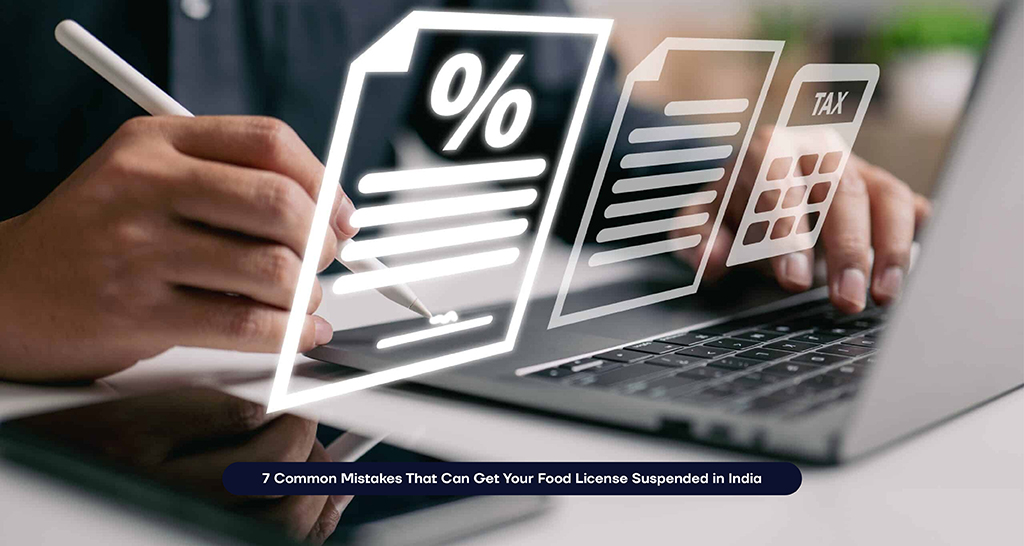Running a food enterprise in India necessitates strict compliance with the regulations established by the Food Safety and Standards Authority of India (FSSAI). Obtaining a food license is not merely a legal obligation; it is an essential requirement that safeguards public health and food safety. Nevertheless, numerous businesses inadvertently breach FSSAI standards, which may lead to the suspension or revocation of their license. Below are seven frequent errors that could endanger your food license in India.
Non-Compliance with Hygiene and Sanitation Standards
The FSSAI requires adherence to hygiene and sanitation protocols throughout all phases of food management, from processing to serving. Inadequate cleanliness in the kitchen, pest problems, or unsanitary food handling methods may result in the immediate revocation of the license.
Failure to Renew the License on Time
A frequent mistake made by small businesses is failing to meet the renewal deadline for their food license. Operating with an expired license is deemed unlawful and may result in penalties or suspension. It is advisable to commence the renewal process 30 days prior to the expiration date.
Mislabeling or Misbranding of Food Products
Inadequate or erroneous labeling, including absent ingredient lists, allergen details, nutritional information, or deceptive assertions, may contravene FSSAI regulations. Both deliberate and inadvertent misbranding can lead to severe repercussions, such as the suspension of business activities.
Use of Unsafe or Banned Ingredients
The utilization of banned substances, including artificial sweeteners exceeding allowable limits or expired raw materials, constitutes a grave violation. The FSSAI performs random sampling, and the identification of such substances may lead to the revocation of licenses.
Lack of Proper Documentation
Insufficient or falsified documentation during the application or inspection process for licenses can lead to serious complications. It is essential for businesses to keep accurate and current records concerning procurement, food testing, employee training, and safety protocols.
Operating in Unapproved or Unauthorized Locations
If a food establishment conducts operations from an unlicensed location or establishes additional units without informing the FSSAI, it may result in regulatory consequences. All sites must receive approval and adhere to local regulations.
Ignoring Food Safety Audits and Inspections
The FSSAI conducts regular inspections of food businesses to verify adherence to regulations. Noncompliance with inspections, neglecting to rectify violations, or failing to implement suggested modifications may result in the suspension or revocation of the business license.
In summary, upholding an FSSAI license necessitates ongoing adherence to food safety regulations. Consistent training, audits, and proper documentation are essential to prevent suspension and to operate a legally compliant food business in India.







